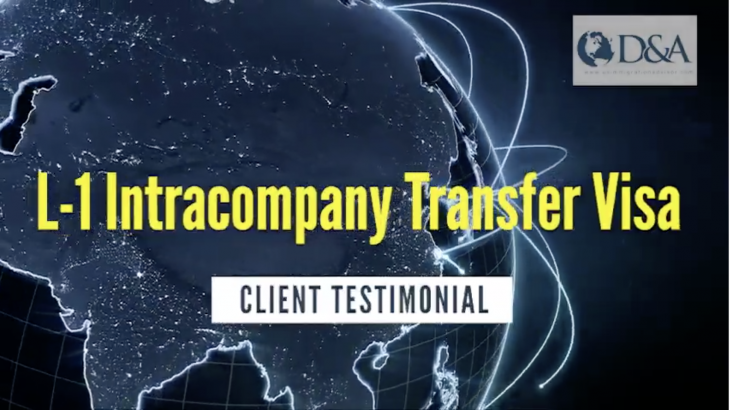U.S. Citizenship and Immigration Services’ (USCIS) Policy Memo of March 2015 (“Memo”) clarifies the L-1B visa “specialized knowledge” standard, providing an authoritative and consolidated guidance on the L-1 visa program.
“Specialized knowledge” under Statutory Laws and Regulations
Under the Immigration and Nationality Act (INA 214(c)(2)(B)), an employee possesses specialized knowledge if he or she has: (1) a “special” knowledge of the company product and its application in international markets; or (2) an “advanced” level of knowledge of the processes and procedures of the company. The corresponding Code of Federal Regulations (8 CFR 214.2(l)(1)(ii)(D)) similarly defines specialized knowledge in terms of “special” or “advanced” knowledge: [S]pecial knowledge possessed by an individual of the petitioning organization’s product, service, research, equipment, techniques, management, or other interests and its application in international markets, or an advanced level of knowledge or expertise in the organization’s processes and procedures.
Statistically, most challenges in L-1B adjudications have centered around the “specialized knowledge” definition and how USCIS interprets and applies it, resulting in inconsistencies in adjudications and sometimes, high rates of denials. As reported by Forbes, over the past 7 years, across parts of three presidential administrations, the USCIS denial rate for L-1B petitions has averaged a very high 28.2%, according to a National Foundation for American Policy (NFAP) analysis of government data.
The Memo attempts to clear the air surrounding the interpretation of “specialized knowledge” by giving guidance on what it takes to demonstrate specialized knowledge.
Key Points of the Memo
“Specialized Knowledge” Definition
The Memo provides that an individual seeking L-1B classification should have:
(i) Special knowledge which is knowledge of the petitioning employer’s product, service, research, equipment, techniques, management, or other interests and its applications in international markets that is distinct or uncommon in comparison to that generally found in the particular industry or within the petitioning employer; or (ii) advanced knowledge, which is knowledge or expertise in the organization’s specific processes and procedures that is not commonly found in the relevant industry and is greatly developed or further along in progress, complexity and understanding than that generally found within the employer.
Application of the “Specialized Knowledge” Standard
The Memo elaborately describes how adjudicators should determine whether an individual possesses “special” or “advanced” knowledge in a given case. It explains that such evaluation inherently requires a comparison of the beneficiary’s knowledge against that of others. The petitioner is required to demonstrate that that the beneficiary’s knowledge is not commonly held throughout the particular industry. For knowledge to be considered specialized, it need not be proprietary in nature or narrowly held within the petitioning organization. Furthermore, an L-1B employee does not require to have BOTH advanced and specialized knowledge to qualify for the classification.
In determining whether knowledge is advanced or special, essentially the same factors and criteria outlined in the Memo apply. The key distinction is whether the knowledge refers to the particular company’s product, service, research, equipment, techniques, management or other interests and its application to international markets or uncommon knowledge of the company’s processes and procedures.
The Memo outlines a list of non- exhaustive factors that USCIS may consider while determining whether knowledge is specialized, which include:
- Whether the beneficiary possesses knowledge of foreign operating conditions that is of significant value to the petitioning organization’s U.S. operations.
- Whether the beneficiary has been employed abroad in a capacity involving assignments that have significantly enhanced the employer’s productivity, competitiveness, image, or financial position.
- Whether the beneficiary’s claimed specialized knowledge normally can be gained only through prior experience with the petitioning organization.
- Whether the beneficiary possesses knowledge of a product or process that cannot be easily transferred or taught to another individual without significant economic cost or inconvenience (because, for example, such knowledge may require substantial training, work experience, or education).
- Whether the beneficiary has knowledge of a process or a product that either is sophisticated or complex, or of a highly technical nature, although not necessarily unique to the firm.
- Whether the beneficiary possesses knowledge that is particularly beneficial to the employer’s competitiveness in the marketplace.
USCIS also highlights the following points related to “specialized knowledge” when adjudicating L-1B petitions: (i) Specialized knowledge cannot be easily imparted to other individuals; (ii) Specialized knowledge need not be proprietary or unique to the petitioning organization; (iii) L-1B classification does not involve a test of the U.S. labor market; (iv) specialized knowledge need not be narrowly held within the petitioning company; (v) employees need not occupy managerial or similar positions or command higher compensation compared to their peers; and (vi) eligibility for another non-immigrant classification is not a bar to eligibility for L-1B classification
“Preponderance of the Evidence” Standard
The Memo confirms that the petitioning company must establish by a preponderance of the evidence that the company meets each eligibility requirement of the L-1B visa category. It directs officers not to apply higher standards of review such as “beyond a reasonable doubt” or
by “clear and convincing evidence.” Instead, an L-1B petitioner will have satisfied the standard of proof if the evidence submitted leads to the conclusion that the claim is “more likely than not” or “probably” true.
This article has been written by Zeenat Phophalia, Esq. Of Counsel, Davies & Associates, India Office.
Zeenat Phophalia is qualified to practice law in New York, United Kingdom and India. She practices in the area of U.S. immigration law with a focus on business immigration, and has represented corporate clients including large and medium sized companies and startups across sectors such as IT, consulting, consumer goods, manufacturing and telecommunications.
Looking for an US immigration lawyer? Request free consultation at Davies & Associates or find our closest location around the world.































